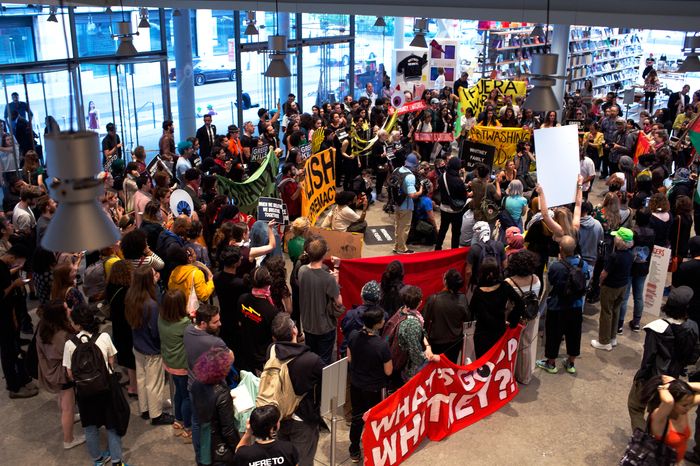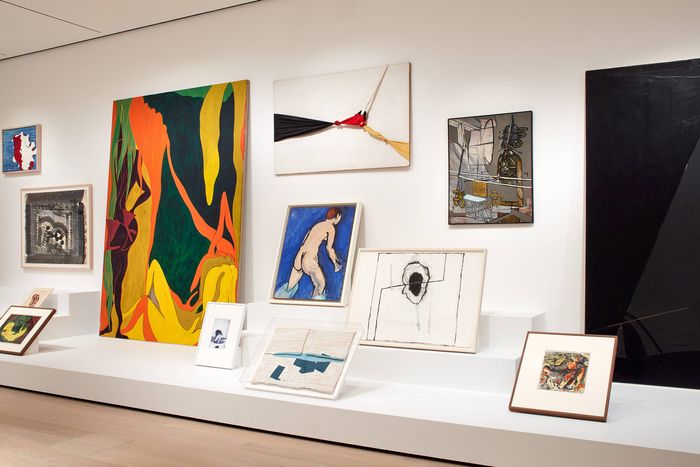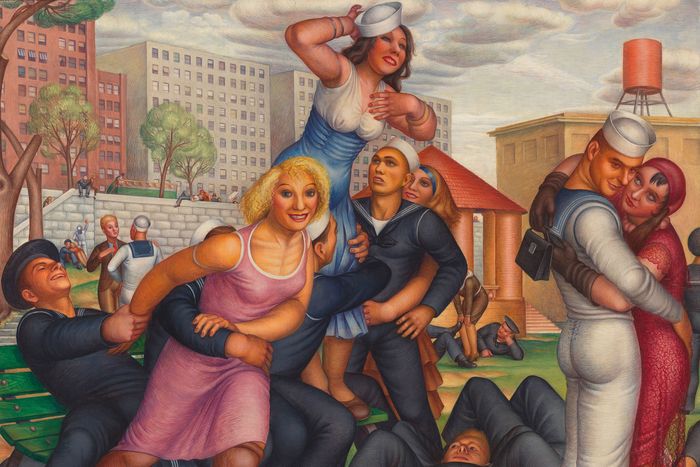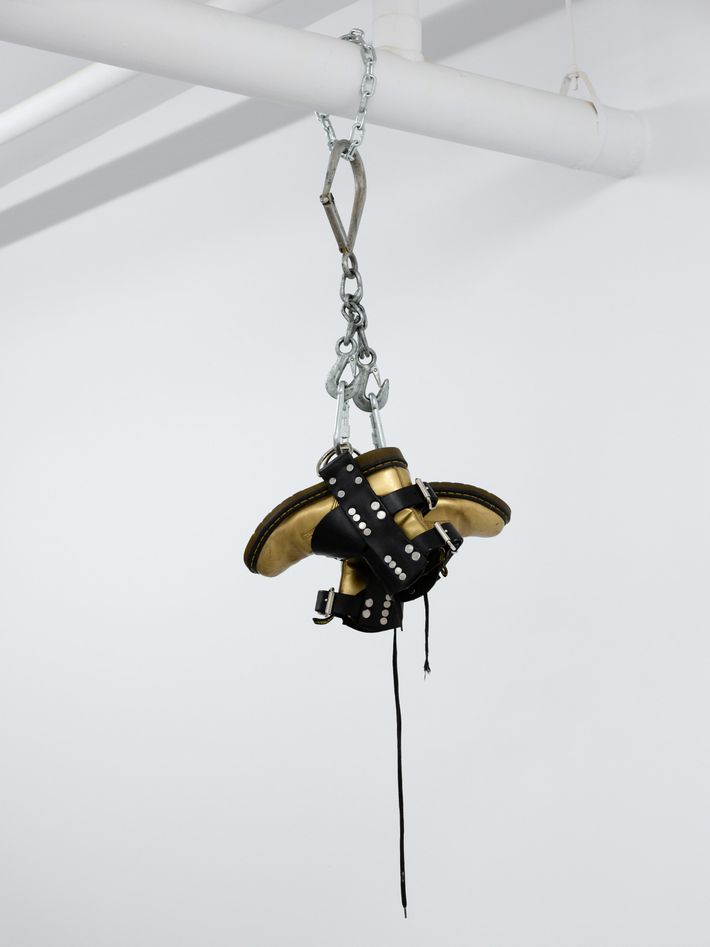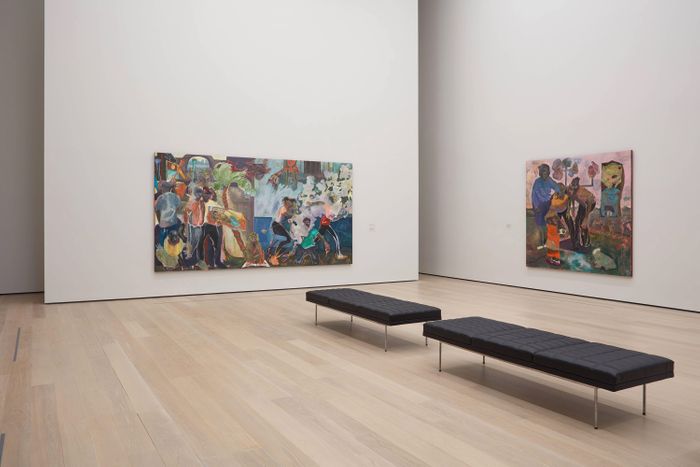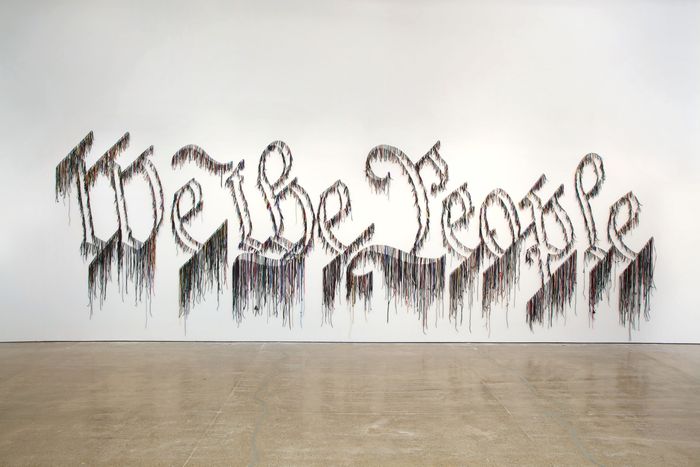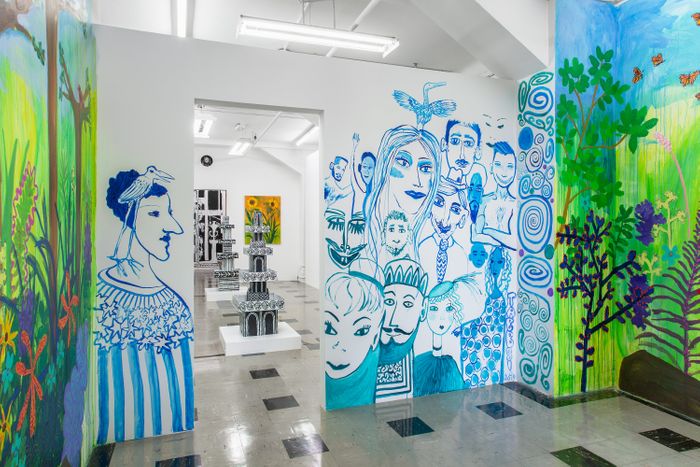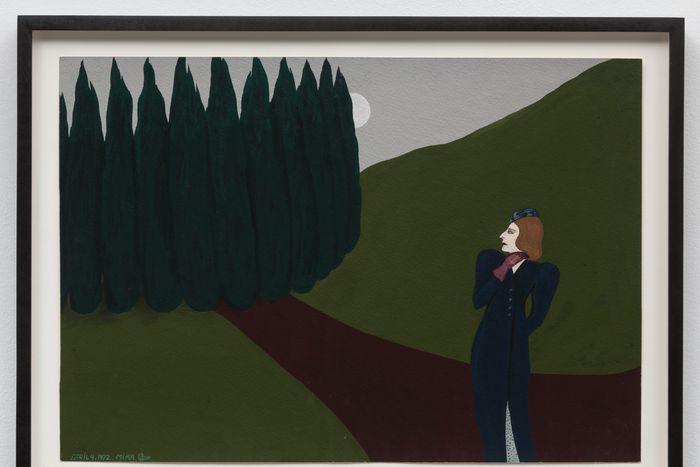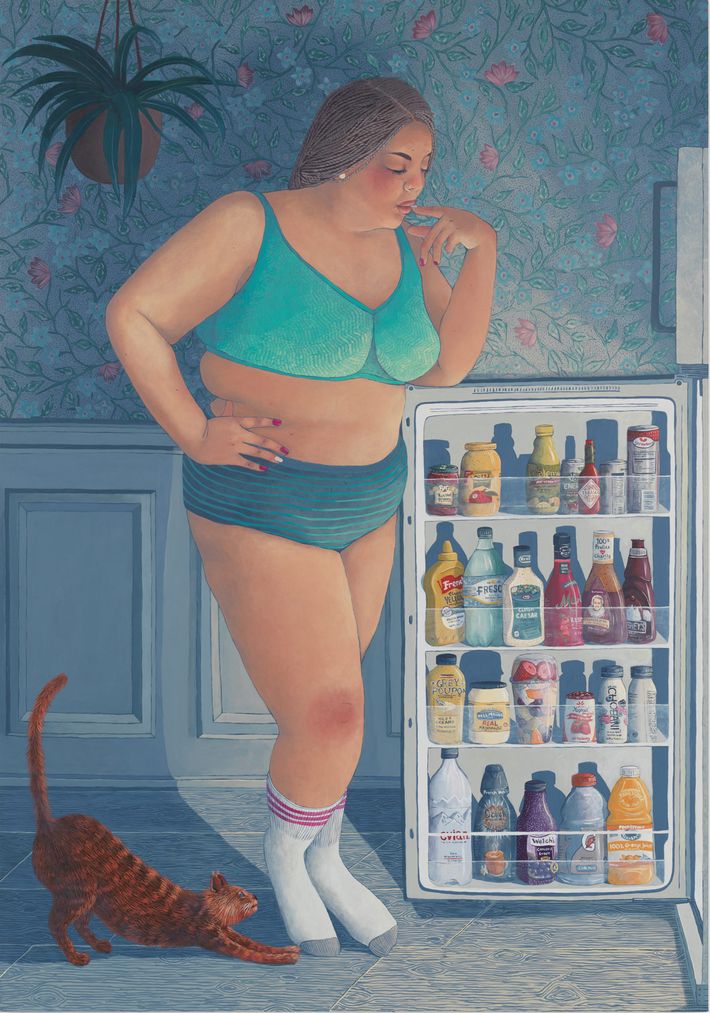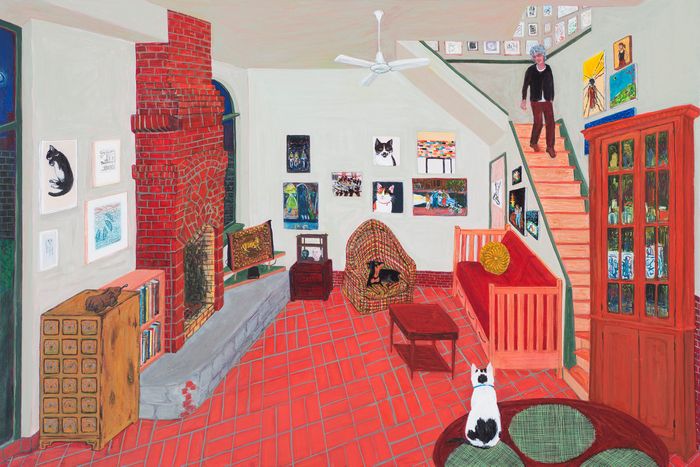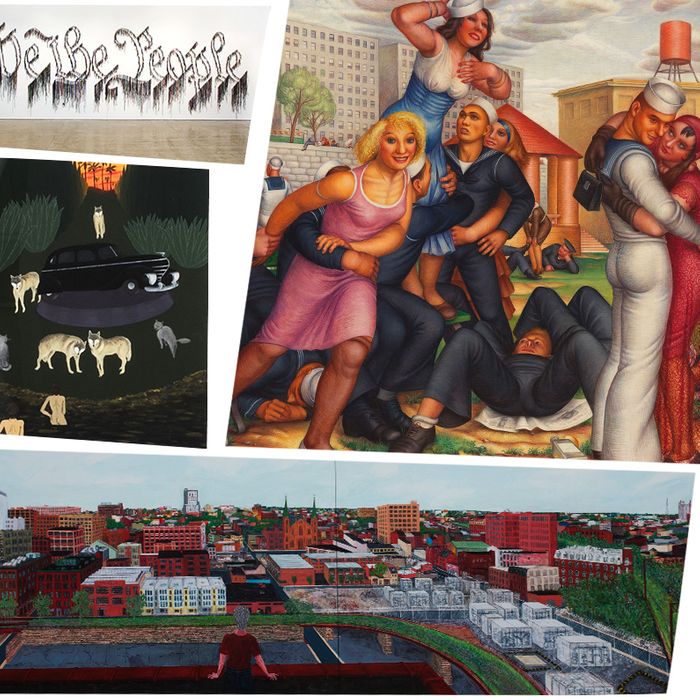
This year saw an art-world protest drown out the Whitney Biennial, and the arrival of one of the most interesting new artists we’ve seen in recent years.
1. Protests by Decolonize This Place
In the spring, this activist group essentially crowded out the Whitney Biennial with a series of protests focused on the museum’s board member Warren Kanders, a military-supplies mogul who eventually stepped down. This was a major disruption of power dynamics that often seem imperturbable. But in the end, they were also only perturbed; Kanders’s resignation was just incremental change. And while the protest shows a path forward, an honest conversation about toxic philanthropy and systemic reconstruction has yet to begin. The art world is a structure awash with plutocrats, gross inequity, and obscene amounts of money, which benefits nearly everyone in the business, even many of those who count themselves as agents of change. Thus the whiplashing contradictions and hypocrisies of protesters who are well-known tenured academics who participate in exhibitions at these institutions. Many of the protesters are also curators who are paid by these institutions. Some of them are even artists who exhibit in them and often sell art to those very plutocrats. This is just suburban war. So what would real war look like? Not just claiming high moral ground and pointing fingers. What would it look like if the system really changed? Whose politics, which artists, and what constituencies would be served? It’s almost hard to imagine, which is what makes such change necessary. J’accuse us all.
2. Robert Andy Coombs
An artist I found and reposted on Instagram who just as quickly had his account deleted. Then, with my help, he regained his account. Since then, his art has captured the imagination of many. Witness the compellingly beautiful self-portrait photographs of this queer quadriplegic artist making love, placing his life in the arms of others, all while addressing pressing issues of the disabled, accessibility, unspoken fears and prejudices, tender mercies and taboos. One of the most radically original and convincing new artists to emerge in some time.
3. Amy Sillman, “The Shape of Shape,” MoMA
As the Museum of Modern Art toyed with removing the stick of modernism from its own keister, artist Amy Sillman went whole hog with the best single gallery of art that didn’t follow modernist strictures, showing the mother ship the jolt possible when you let go of old ideas.
4. “The Young and Evil,” David Zwirner Gallery
Curated by Jarrett Earnest, this large-scale group historical survey threw a stylistic grenade at the prejudices of modernism. Included were early-20th-century queer artists who were all utterly amazing without ever embracing the cult of genius or making formalist abstract art.
5. Tiona Nekkia McClodden, Company Gallery
A major standout in this year’s Whitney Biennial, this preternaturally gifted multimedia artist and psycho-metaphysician — who whittled down a whole tree to make a primitive carving tool for that show — also had one of the best solo shows of the year.
6. Michael Armitage, MoMA
As curated by Studio Museum in Harlem director Thelma Golden, this gripping exhibition of Kenyan painter Michael Armitage tells us that early- and mid-modernist tropes are being deployed in ways that tell new narratives, which in turn revitalize the tropes themselves.
7. Nari Ward, New Museum
In a very good year for the New Museum, the retrospective by the highly respected Jamaican-born New Yorker Nari Ward was a standout. He filled the building with sculptural intelligence — politics made magical, visceral, and beautiful.
8. Elisabeth Kley and Tabboo!, Gordon Robichaux Gallery
This collaboration between ceramicist and painter Elisabeth Kley and painter, designer, and legendary drag queen Tabboo! (a.k.a. Stephen Tashjian) was a garden of optical and material delights.
9. Mira Schor, Lyles & King Gallery
The early-’70s work of this artist’s artist, longtime activist, and respected critic Mira Schor showed how far ahead, strong, personal, and pointed her art has been from the very beginning. An institutional survey is in order.
10. Sarah McEneaney, Tibor de Nagy Gallery, and Shona McAndrew, Chart Gallery.
With portraits of their lives, homes, friends, and intimacies, these two figurative painters of different generations took us deep into the heart of obsession, solitude, and observation. The retinal radical vulnerability of their work gives new hope to living life.
*This article appears in the December 23, 2019, issue of New York Magazine. Subscribe Now!
More From This Series
- The Best Board Games to Play Right Now
- The 10 Best TV Needle Drops of 2019
- The Weepiest TV Moments of 2019


